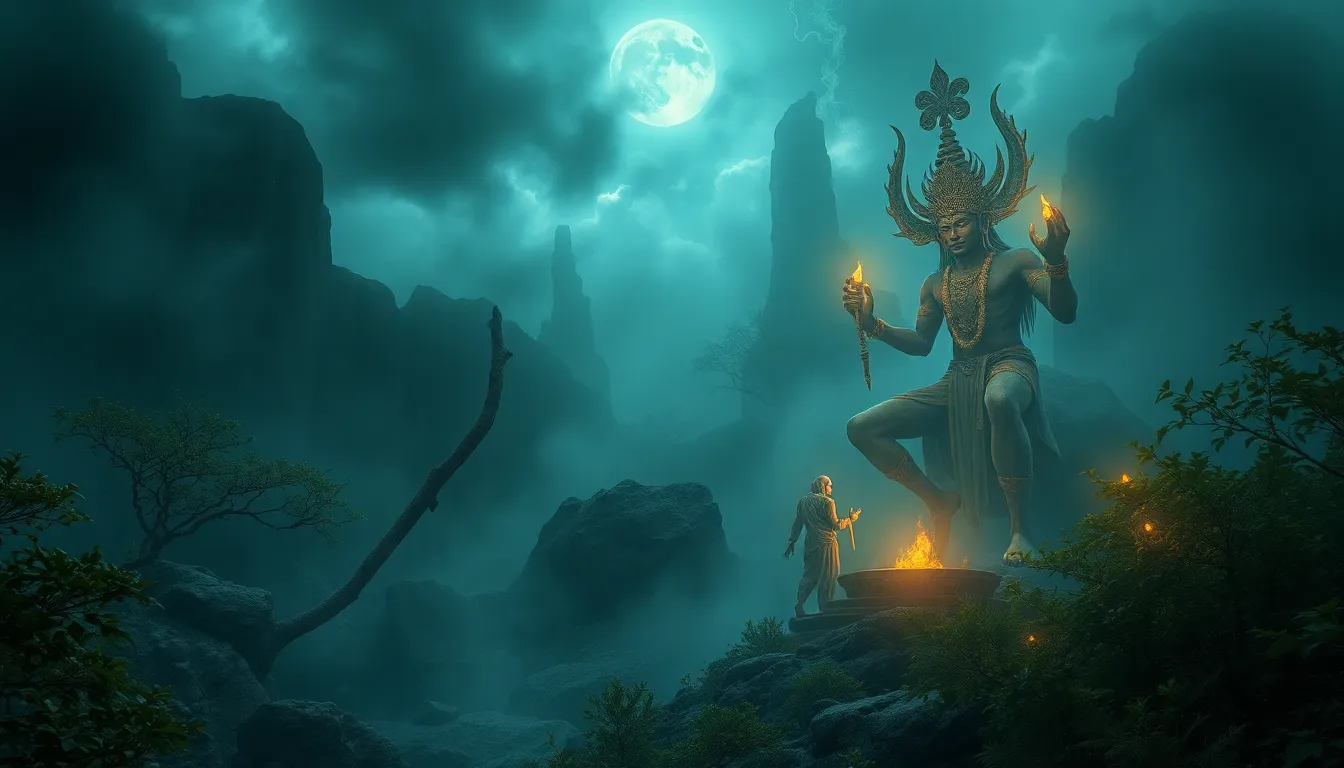The Tengu’s Legacy: Exploring Their Influence on Modern Culture and Society
I. Introduction
The Tengu, a mythical creature rooted deeply in Japanese folklore, has captured the imagination of many for centuries. Often depicted with human and bird-like features, Tengu are considered supernatural beings associated with the mountains and forests. Their origins can be traced back to ancient Chinese mythology, where they were initially viewed as celestial beings before evolving into distinct figures within Japanese culture.
In Japanese folklore, Tengu hold a significant place as both protectors and tricksters, embodying a complex duality that reflects the intricacies of human nature. They are revered in various contexts, from spiritual guardians to mischievous pranksters, highlighting their importance in the cultural and spiritual tapestry of Japan.
This article aims to explore the multifaceted influence of Tengu on modern culture and society, examining their historical context, representations in literature and art, roles in popular media, and their continuing relevance in contemporary spiritual practices.
II. Historical Context of Tengu in Japanese Folklore
The evolution of Tengu from ancient to modern interpretations reveals a rich tapestry of beliefs and stories. Initially depicted as heavenly beings, Tengu transformed into more complex figures over time, often seen as intermediaries between the human world and the divine.
Key characteristics associated with Tengu include:
- Physical Appearance: Typically portrayed with a long nose, red face, and sometimes wings, embodying both human and avian traits.
- Symbolism: Representing strength, wisdom, and the duality of nature, Tengu embody both the protective and chaotic aspects of the world.
- Spiritual Role: Tengu are seen as guardians of the mountains, often invoked in rituals and prayers by those seeking protection or guidance.
In traditional Japanese spirituality, Tengu play a significant role in various religious practices, often representing the balance between good and evil, teaching important moral lessons through their interactions with humans.
III. Tengu in Literature and Art
Tengu have long been a prominent subject in classical Japanese literature. From ancient texts to modern stories, they showcase the evolution of their character and symbolism.
In classical literature, Tengu are often featured in:
- Folktales: Stories highlighting their trickster nature and interactions with famous historical figures.
- Poetry: Tengu are used as metaphors for philosophical concepts and the duality of existence.
The influence of Tengu extends into visual arts as well, particularly through:
- Ukiyo-e: Traditional woodblock prints that often depict Tengu in a variety of settings, emphasizing their mystical attributes.
- Contemporary Art: Modern artists continue to draw inspiration from Tengu, reinterpreting their form and symbolism to reflect contemporary themes.
Additionally, Tengu serve as a compelling motif in modern literature and graphic novels, appearing in works that explore themes of identity, transformation, and the struggle between good and evil.
IV. Tengu in Popular Media
In the realm of popular media, Tengu have made their mark, particularly in anime and manga, where they are often portrayed with a blend of traditional and modern characteristics.
Notable aspects of Tengu in popular media include:
- Anime and Manga: Tengu characters often embody complex traits, serving as mentors, guardians, or adversaries, and reflect the ongoing fascination with their folklore origins.
- Video Games: Many games incorporate Tengu as characters with special abilities, often highlighting their supernatural prowess and connection to nature.
- Film and Television: Tengu are portrayed in various films and shows, contributing to narratives that explore themes of spirituality, conflict, and the human experience.
V. Tengu’s Role in Modern Spirituality and Practices
With the resurgence of interest in traditional practices, Tengu have found a place in modern spirituality. Neo-shamanism and other contemporary movements often incorporate Tengu as symbols of resilience and adaptability.
Key points regarding Tengu in modern spiritual practices include:
- Resurgence of Worship: Some groups have begun to revive Tengu worship, viewing them as spiritual guides and protectors.
- Symbol of Resilience: Tengu represent the ability to adapt and thrive in changing environments, making them relevant in today’s spiritual discourse.
- Modern Festivals: Tengu motifs can be seen in various Japanese festivals, celebrating their legacy and cultural significance.
VI. Cultural Exchange: Tengu Beyond Japan
The influence of Tengu extends beyond Japan, as characters and motifs inspired by Tengu appear in Western media. This cultural exchange highlights the global fascination with folklore and mythology.
Aspects of Tengu in international contexts include:
- Tengu-inspired Characters: Western comics and animations often adapt Tengu traits, creating characters that resonate with similar themes of duality and transformation.
- Globalization of Tengu: The spread of Tengu narratives in various cultures signifies a growing interest in understanding and appreciating diverse folklore.
- Cross-cultural Adaptations: Different cultures interpret Tengu through their own lenses, resulting in unique adaptations of their stories and characteristics.
VII. Tengu in Modern Society and Psychology
Tengu serve as archetypes in modern psychology, embodying themes that resonate with contemporary issues. Their dual nature reflects the complexities of human behavior and societal challenges.
Notable roles of Tengu in psychology include:
- Archetypes: Tengu represent aspects of duality, conflict, and the struggle between societal norms and individual desires.
- Themes of Duality: They highlight the internal conflicts that individuals face, presenting opportunities for self-reflection and growth.
- Environmental Awareness: Tengu’s connection to nature emphasizes the importance of environmental conservation and respect for the natural world.
VIII. Conclusion
The Tengu’s legacy is multifaceted, influencing various aspects of modern culture and society. From their historical roots in Japanese folklore to their representation in contemporary media, Tengu continue to resonate with audiences across the globe.
Preserving the legacy of Tengu is essential, as it offers valuable insights into human nature, spirituality, and our relationship with the world around us. As we explore the connections between folklore and contemporary life, we can appreciate the rich tapestry of stories that shape our understanding of ourselves and our culture.



